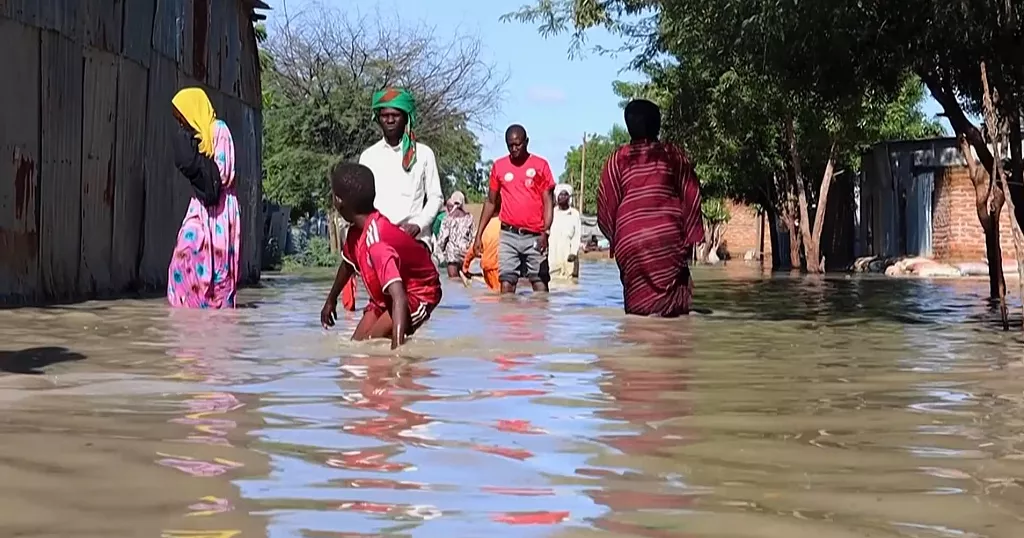Devastating Floods in Chad Leave 1.9 Million Affected
3 min read

Chad is facing a dire humanitarian crisis as intense floods, exacerbated by severe rainfall, have impacted all 23 provinces of the country. The catastrophic flooding has claimed over 550 lives and resulted in the destruction of 210,000 homes, displacing countless families and communities.
The rainy season in Chad typically lasts until October, and this year’s downpours have been particularly devastating. Approximately 432,000 hectares of land have been flooded, and around 72,000 livestock have perished, significantly affecting the agricultural and pastoral livelihoods of many families.
The flooding comes on the heels of Chad declaring a food security and nutrition emergency in February. Currently, about 1.9 million people are estimated to be affected by this crisis, with the United Nations Population Fund (UNFPA) reporting that around 85,000 of those affected are pregnant women. This situation has exacerbated the existing challenges in a country already struggling with food insecurity.
Many families are now seeking refuge in makeshift shelters, including schools and public spaces, leaving them without access to essential health services, clean drinking water, and sanitation facilities. The lack of hygiene is particularly alarming, as it increases the risk of diseases such as diarrhea, malaria, and respiratory and skin infections. The combination of overcrowded conditions and inadequate access to basic services creates a perfect storm for potential outbreaks.
In response to this urgent situation, UNFPA has mobilized resources and personnel to support the Ministry of Public Health and Prevention. The organization is working to provide reproductive health and protection services, as well as hygiene supplies, to those affected by the floods. As part of these efforts, 248 humanitarian midwives have been deployed to deliver critical maternal healthcare services to vulnerable women.
The situation is particularly precarious for women and girls in temporary shelters. The lack of privacy and security in these makeshift sites increases the risk of violence and exploitation. Many women and girls face additional dangers when they venture outside to search for food and firewood, especially in unfamiliar and unsafe environments.
The widespread flooding in Chad is part of a larger crisis affecting the West and Central African region, where nearly two million people are experiencing similar challenges due to severe weather conditions. The situation highlights the urgent need for international support and humanitarian assistance to address the immediate needs of those affected and to implement longer-term solutions to improve resilience against future climate-related disasters.
Efforts to respond to the flooding must focus not only on immediate relief but also on rebuilding and strengthening infrastructure to better withstand future crises. This includes improving access to clean water, sanitation facilities, and healthcare services, as well as providing support for agricultural recovery to ensure food security in the long term.
The current crisis in Chad serves as a stark reminder of the vulnerabilities faced by communities in regions prone to climate change and extreme weather events. As the situation continues to evolve, the need for coordinated efforts among local, national, and international stakeholders is critical to effectively address the humanitarian challenges and support recovery efforts.
In the face of such adversity, the resilience of the affected communities remains a beacon of hope. However, they cannot navigate this crisis alone. It is imperative that the global community comes together to provide the necessary resources and support to help Chad recover from this devastating flooding and to build a more resilient future for its people.